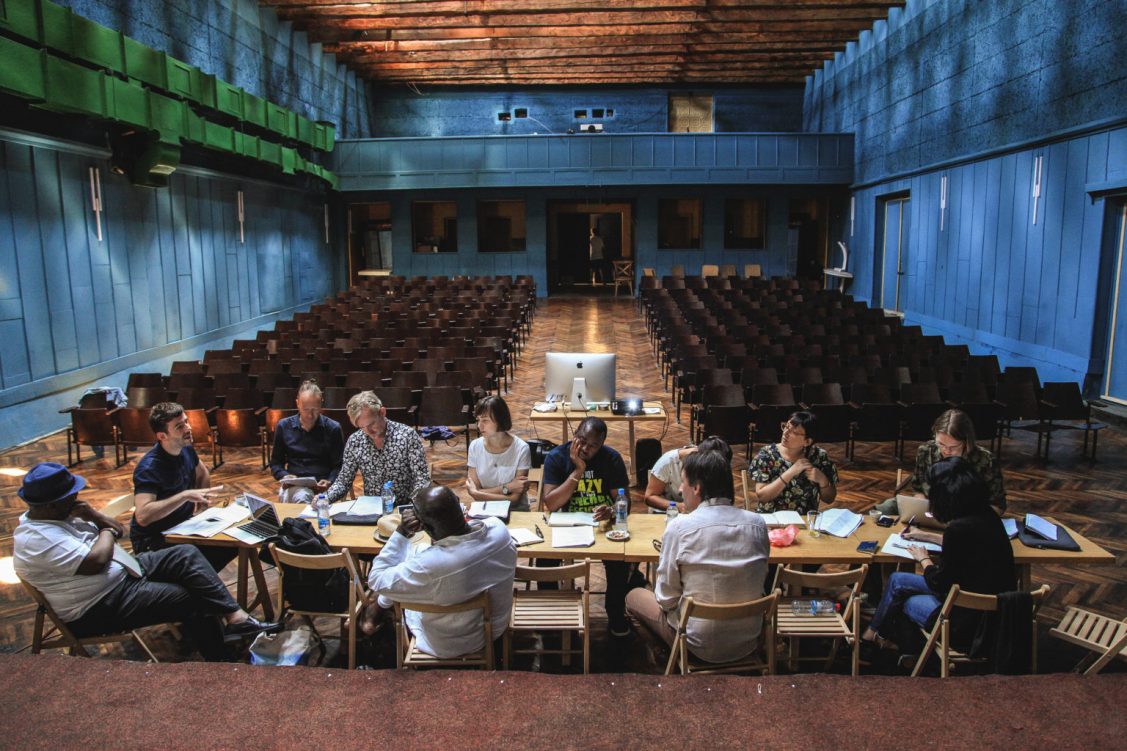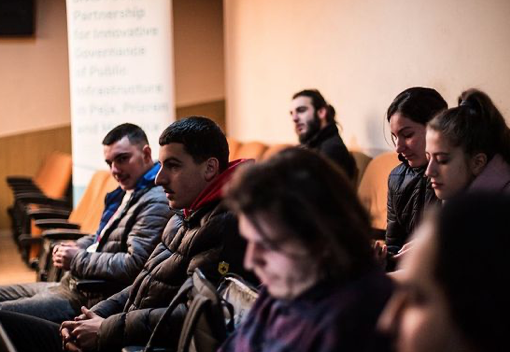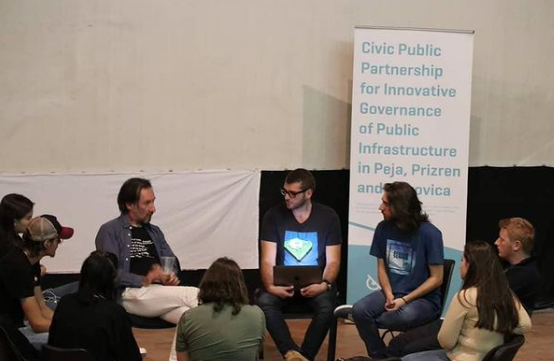May 28, 2021 | Friday
To understand more about the EU funded project “Kosovo Cultural Spaces (KCS)”, we have interviewed the project manager Valton Marku.

What is the “Kosovo Cultural Spaces” project?
“Kosovo Cultural Spaces” (KCS) is a project implemented by Anibar (Peja) in partnership with Lumbardhi (Prizren), 7 Arte (Mitrovica) and Pogon (Zagreb). This 4-year project was launched in 2019 and its completion is by the end of 2022. The project’s principal goal revolves around the development of new participatory governance models with regards to public infrastructure, aiming at delivering such models through public-civil partnerships, while advocacy is conducted through Cultural Organizations Networks (CONs). The KCS stands on three core pillars:
Now that the project is in its third year of implementation and it is entering its second half, KCS stakeholders have been able to visibly enhance programming capacities and to significantly strengthen their Cultural Organizations Networks, and are on the right path to foster the municipalities’ openness and involvement vis-a-vis the management of public resources, but also to enhance their capacities involved in the management of such resources.
The project has planned various activities, such as public discussions, musical performances, poetry nights and more. How many of them have you been able to host?
From its launch in 2019 to the present moment, the KCS project has, in the framework of public programs, managed to deliver about 120 public programs in the respective spaces of the partners of this initiative, but also in various public spaces in Peja, Prizren and Mitrovica. Among the programs worth mentioning are the musical performances within the 11th Anibar Animated Film Festival and the “Nuit Blanche” cultural event held in Prizren. Various topics of social and cultural relevance have been addressed in the framework of public discussions that have featured prominent professionals in the capacity of speakers. The literary creations of numerous local and international authors, performed at the poetry nights, have spurred many discussions and emotions, while dozens of young musicians have had the opportunity to showcase their talent in Peja, Mitrovica and Prizren. Retrospectives and various films have been featured for the first time for the public, just as the first film and reading club was established within the “Jusuf Gërvalla” Cinema in Peja, under the name “Jusuf Gërvalla” Cinema Club. The hundreds of cultural and social activities carried out over two years by the programs supported by the KCS have also been able to produce extremely high quality.

What has been the impact of these activities on achieving the project goals?
Taking into account the duration of the project, the implemented activities have led to outcomes that for the most part represent the final goals of the project. With support from the KCS, the “Jusuf Gërvalla” Cinema regular public programs now feature the Cinema Club and the Poetry Nights, which goes to show the progress in terms of program development. On the other hand, the Peja, Prizren, and Mitrovica Cultural Organizations Networks (CONs), in addition to creating strategies for their journey, have also made significant progress in terms of their expansion and further strengthening. CON Peja was recently awarded a supporting grant from a foundation, CON Prizren has also been formally registered, while CON Mitrovica has evolved into various unconventional formats. Over this period of two years, the intensity of meetings with various officials at the local and national level has significantly increased, while the level of advocacy for the establishment of the Fund for Independent Culture has been considerably more elevated, thus fostering initiatives for the creation of models of various public-civil partnerships.

How much has the pandemic affected the hosting of these activities?
The pandemic outbreak created a lot of confusion, and perhaps this is natural for a disaster of such global magnitude that we are still facing to this day. It’s not hard to imagine that cultural activities are largely futile if they are not presented (in tangible manner) to live audiences. There seemed to be no end to the confusion that gripped us in the early days of this catastrophe. However, at the peak of the outbreak, without even giving it a second thought, we chose to be more flexible, hosting most of our programs in the virtual format, thus targeting a new, virtual audience. During the days of lockdown we produced over 30 cultural activities in virtual format. Although the situation with Covid-19 has made us rethink each and every function in the delivery and creation of art and culture, one thing was proven to be correct: art and culture always win. The virtual hosting of activities has served as a stopgap measure against the isolation social distancing has created and continues to create. If anyone has won against Covid-19, then we can confidently say that the true winners are those organizations that despite the difficulties were still able to produce and deliver art.
What are your plans and activities for the future? Do you think the project will manage achieve sustainability?
In view of what has been achieved midpoint into the project, the KCS project has reason to hope that it will exceed the initial expectations and it will become self-sustaining. The plans for this year, but also for the last remaining year, are related to the creation of specific public-civil partnerships, which would mark greater openness and involvement of municipalities with regards to public spaces. Among other things, to enhance management capacities, a study visit to Croatia and several workshops are planned. A study of public spaces that can potentially be transformed into cultural spaces is underway, and a number of explanatory videos and infographics of this nature will also be produced. Meanwhile, until the end, the cultural spaces that are already managed by Anibar, Lumbardhi and 7 Arte, will continue to deliver diverse cultural programs of public relevance. The outcome will be a richer cultural life in Peja, Prizren and Mitrovica.